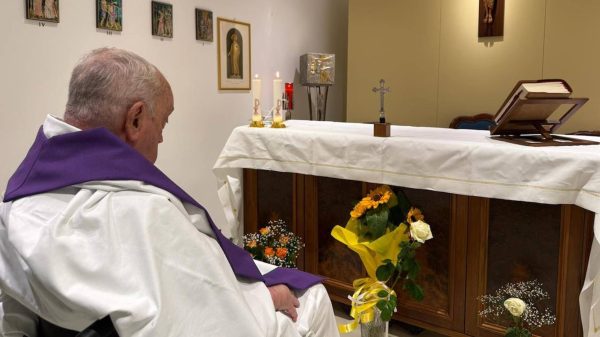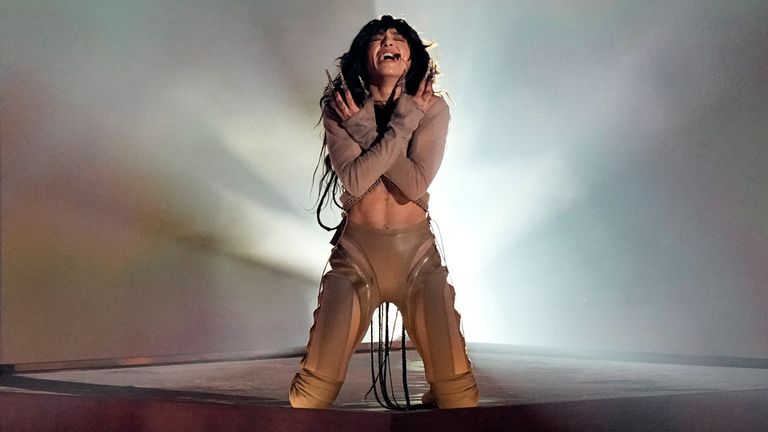Sweden won the Eurovision Song Contest this year, and Loreen made history by becoming the first woman ever to win the contest more than once. She first won the title in 2012.
With seven wins each, Sweden and Ireland are now tied for most Eurovision victories.
Finland came in second place with the hyper-pop-rap song Cha Cha Cha by Kaarija, a quirky singer.
The 29-year old Finn was a popular act leading up to the final. He arrived in his own custom-made sauna van, and looked stunning on the red carpet with his neon green puffer jacket that had only sleeves and his bowl haircut.
Israel, represented by Noa Kirel, was third. The dance routine that accompanied her song, which had the most energy, was the best of the night.
UK act Mae Muller , who sang I Wrote A Song came in disappointingly second last.
The 25-year old from North London will take a big hit, as she was widely expected to reach the top 10 of the charts with her catchy track. This is especially true after the UK’s victory in the contest the previous year.
The singer tweeted after the competition ended that “it was not the result we had hoped for”, but that she was “proud” of “everyone”. She added that she “would never forget this journey”.
As Ukrainian duo Tvorchi sang Heart Of Steel, , their university hometown Ternopil was hit by Russian missiles.
The entry placed sixth in the leaderboard.
A surprise was also in store for the evening, as the Princess of Wales performed a piano piece at the start of the show.
The show also featured Sam Ryder, the Eurovision winner from last year, performing Mountain with Queen legend Roger Taylor on the drums. Sonia, a Liverpool singer and Abba’s Bjornulvaeus gave advice to future contestants.
Eurovision isn’t about winning. It’s much more than that. The contest this year was more proof than ever of the power music has to unite.
Read more
Kalush Orchestra says Zelenskyy only wanted to say thank you for the UK.
Ukraine’s Tvorchi talks about Eurovision, war and their message to Russia
Liverpool hosted Eurovision for the first time, as Ukraine was unable.
Eleven Ukrainian performers performed at the ceremony, and Ukrainian themes and identity played a major role all night.
There was controversy before the competition when President Volodymyr Zelenskyy was prohibited from delivering an address at the grand finale.
In a tweet, Prime Minister Rishi sunak called the European Broadcasting Union (EBU’s) decision to prohibit his appearance as ” dissatisfying ” but added that Liverpool “had done the United Kingdom and Ukraine pride,” after the competition.
The EBU (a group of public broadcasters who produce Eurovision) said that they were concerned about his message “politicising” the contest.
Other performers made reference to the invasion of Ukraine by Russia despite the ban.
Let 3 from Croatia performed Mama SC, a song against war. Let 3 from Croatia performed Mama SC!, a song against war.
The night was also heightened by a powerful performance by Kalush Orchestra, who performed Voices Of A New Generation. This was followed by their hit Stefania. Stefania has been an unofficial Ukrainian anthem since the beginning of the war.
Eurovision has always been a fan of novelty acts, and this year’s show was no exception.
The Austrian act We Need To Talk about Edgar Allen Poe opened the competition. Singers Teya & Salena channeled the ghost of Poe to slap music streamers.
While not all the wackier acts were rewarded for their inventiveness on the leaderboards, some of the performances that got the audience buzzing were Australia’s Voyager singing Promise on the bonnet a vintage Toyota MR2; Croatia’s Let 3 stripping down to their pants and vests halfway through Mama SC
Subscribe to Backstage wherever podcasts are available
Fans of the most watched live non-sporting event in the world will be excited about next year’s performance.
It will be the third time in 12 years that the country has hosted a Eurovision final.
Many will wonder if the shadow cast by the war in Ukraine is still so heavy on the show next year.





















